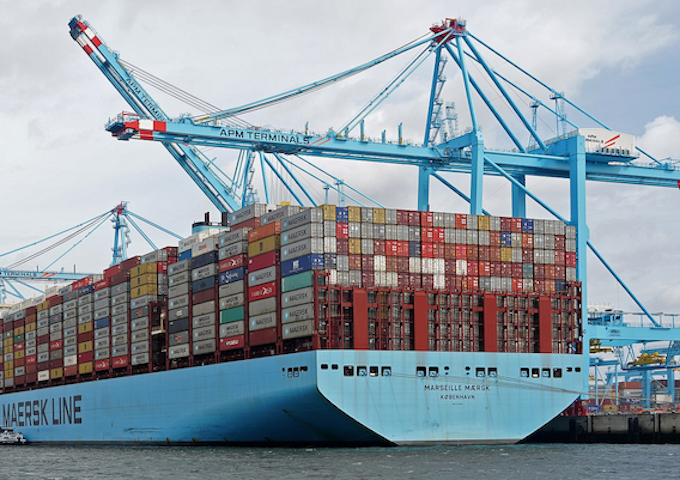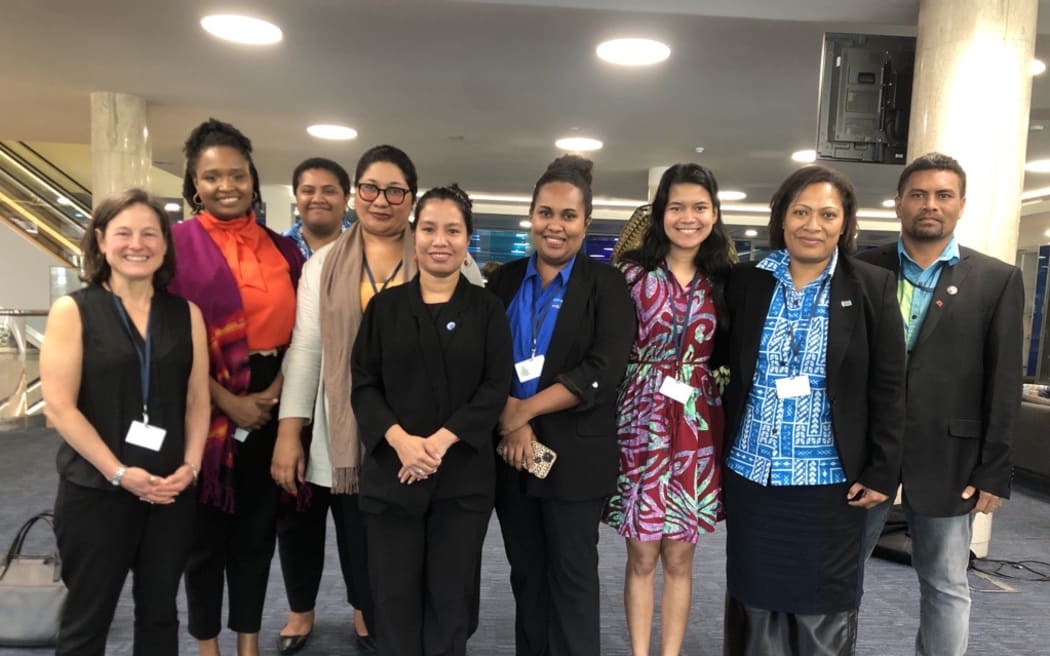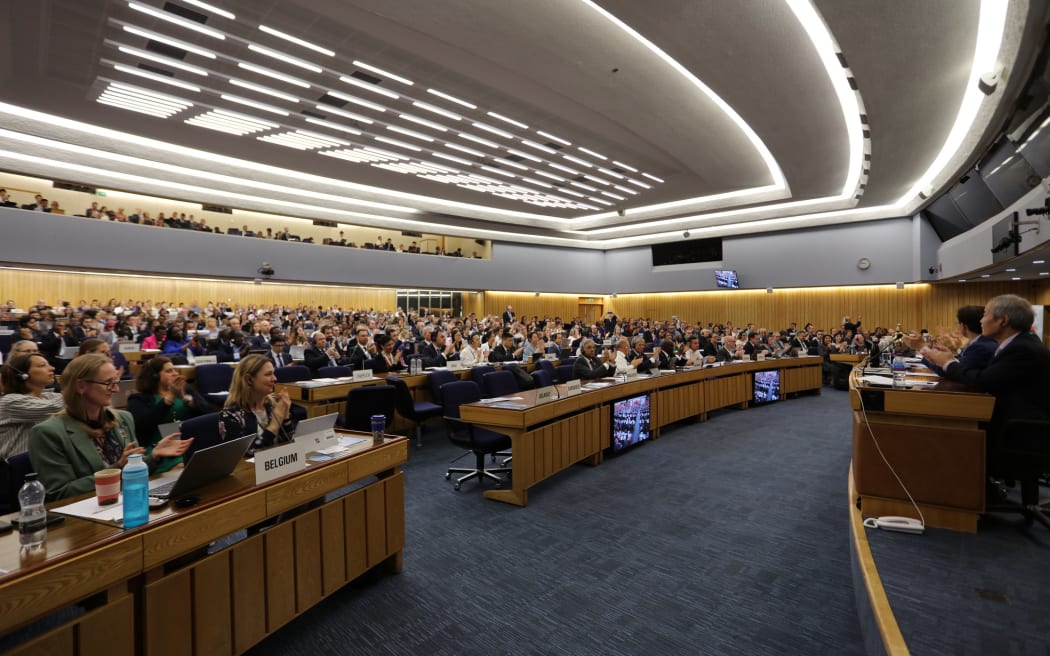
By Kelvin Anthony,
Pacific island countries’ “relentless” efforts at the UN’s specialist agency on shipping, International Maritime Organisation (IMO), has resulted in the adoption of a new emissions reductions strategy to ensure the Paris Agreement goal remains within reach.
The IMO’s 80th Marine Environment Protection Committee (MEPC80) was under pressure to deliver an outcome to reduce the global maritime transportation industry’s carbon footprint and to steer the sector towards a viable climate path that is 1.5 degrees-aligned.
It was a political compromise after two weeks of intense politicking that got member states through to settle on the 2023 IMO Greenhouse Gas Strategy on Friday, just as hopes were fading of any meaningful outcome from the negotiations at the IMO’s climate talks in London.
The Pacific collective from the Marshall Islands, Fiji, Kiribati, Tuvalu, Tonga and Solomon Islands, who have been at the IMO since 2015 joined by Vanuatu, Nauru, Samoa and Nauru — referred to as the 6PAC Plus — overcame strong resistance to ensure international shipping continues to steam towards full decarbonisation by 2050.
Vanuatu’s Climate Change Minister Ralph Regevanu, who attended the IMO meeting for the first time, said: “This outcome is far from perfect, but countries across the world came together and got it done — and it gives us a shot at 1.5 degrees.”

Pacific nations were advocating for global shipping to reach zero emissions by 2050 consistent with the science-based targets.
They had proposed absolute emissions cuts from the sector of at least 37 percent by 2030 and 96 percent by 2040 for the industry, to ensure the IMO is not out of step on climate change.
Countries came up short
But countries came up short, instead agreeing that to “reach net-zero GHG emissions from international shipping” a reduction of at least 20 percent by 2030, striving for 30 percent, and at least 70 percent by 2040, striving for 80 percent compared to 2008, “by or around 2050”, was sufficient to set them on the right trajectory.
While there were concerns that targets were not ambitious, they were accepted as better than what nations had decided on in an earlier revised draft text on Thursday, when they agreed for only 20 percent by 2030, with the upper limit of 25 percent, and at least 70 percent by 2040, striving for 75.
“These higher targets are the result of relentless, unceasing lobbying by ambitious Pacific islands, against the odds,” Marshall Islands special presidential envoy for the decarbonisation of maritime shipping, Albon Ishoda said.
”If we are to have any hope of saving our beautiful Blue Planet, and building a truly ecological civilisation, the climate vulnerable needs our voices to be heard and we are confident that they have been heard today.”

Tuvalu’s Minister for Transport, Energy and Tourism, Nielu Mesake, said he was “very disappointed” to have “a strategy that falls short of what we need”.
“But we are also realistic and understand that to reach any chance of setting this critical sector in the right direction we needed to compromise,” Mesake said.
He said Tuvalu was confident in the shipping industry’s ability to change.
“We have seen it before. We are confident that our industry will now prioritise each effort and each capital into decarbonizing [and] see shipping stepping up to the plate and fulfil its responsibility to reduce emissions.”
Ishoda said the IMO’s focus now was to deliver on the targets.
“We look forward to swift agreement on a just and equitable economic measure to price shipping emissions and bend the emissions curve fast enough to keep 1.5 alive.”
More work ahead
IMO chief Kitck Lim said the adoption of the strategy was a “monumental development” but it was only “a starting point for the work that needs to intensify even more over the years and decades ahead of us.”
“However, with the Revised Strategy that you have now agreed on, we have a clear direction, a common vision, and ambitious targets to guide us to deliver what the world expects from us,” Lim said.
And Pacific nations are under no illusion of the task ahead for international shipping truly to truly meet the 1.5 degrees limit.
Fiji’s Minister for Transport Ro Filipe Tuisawau said: “We know that we have much more work to do now to adopt a universal GHG levy and global fuel standards urgently.
“These are tools which will actually reduce emissions. We also look forward to the utilisation of viable alternative fuels,” Tuisawau said.
Kiribati Minister for Information, Communication and Transport Tekeeua Tarati said the process of arriving at the final outcome “has been an extremely challenging and distressing negotiation for all parties involved.”
“We had hoped for a revised strategy that was completely aligned to 1.5 degrees, not a strategy that merely keeps it within reach,” Tarati said.
“We need to work on the measures that are essential to achieve the emissions reductions we so desperately need.”

Carbon levy on the table
The calls for a GHG levy for pollution from ships also made it through as an option under the basket of candidate mid-term GHG reduction measures, work on which will be ongoing in future IMO forums.
While the word “levy” is not mentioned, the strategy states an economic measure should be developed “on the basis of maritime GHG emissions pricing mechanism”.
“A GHG levy, starting at $100/tonne, is the only way to keep it there. Ultimately it’s not the targets but the incentives we put in place to meet them. So we in the Pacific are going to keep up a strong fight for a levy that gets us to zero emissions by 2050.”
Ishoda said a universal GHG levy “is the most effective, the most efficient, and the most equitable economic measure to accelerate the decarbonisation of international shipping.”
But he acknowledged more needed to be done.
“There is much work to do to ensure that 1.5 remains not just within reach, but it’s achieved in reality.”
‘Wish and prayer agreement’
But shipping and climate campaigners say the plan is not good enough.
According to the Clean Shipping Coalition, the target agreed to in the final strategy was weak and “is far short of what is needed to be sure of keeping global heating below 1.5 degrees.”
“There is no excuse for this wish and a prayer agreement,” the group’s president, John Maggs, said.
Maggs said the member states had known halving emissions by the end of the decade “was both possible and affordable”.
“The most vulnerable put up an admirable fight for high ambition and significantly improved the agreement but we are still a long way from the IMO treating the climate crisis with the urgency that it deserves and that the public demands.”
University College London’s shipping expert Dr Tristan Smith said outcome of IMO’s climate talks “owes so much to the leadership of a small number of climate vulnerable countries – to their determination and perseverance in convincing much larger economies to act more ambitiously”.
“That this still does not do enough to ensure the survival of the vulnerable countries, in spite of what they have given to help secure the sustainability of global trade, is why more is needed, and all the more reason to give them the credit for what they have done and to heed their calls for a GHG levy,” Dr Smith added.
This article is republished under a community partnership agreement with RNZ.













































